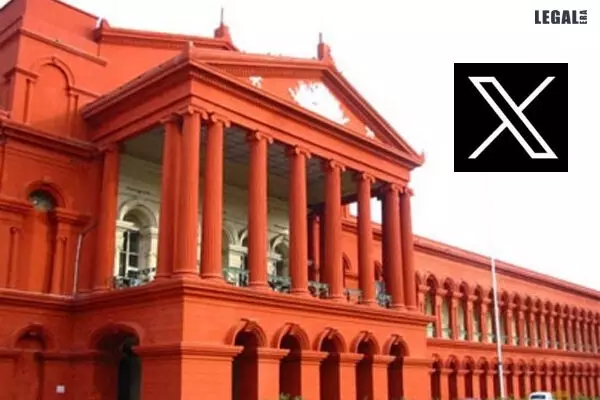- Home
- News
- Articles+
- Aerospace
- Artificial Intelligence
- Agriculture
- Alternate Dispute Resolution
- Arbitration & Mediation
- Banking and Finance
- Bankruptcy
- Book Review
- Bribery & Corruption
- Commercial Litigation
- Competition Law
- Conference Reports
- Consumer Products
- Contract
- Corporate Governance
- Corporate Law
- Covid-19
- Cryptocurrency
- Cybersecurity
- Data Protection
- Defence
- Digital Economy
- E-commerce
- Employment Law
- Energy and Natural Resources
- Entertainment and Sports Law
- Environmental Law
- Environmental, Social, and Governance
- Foreign Direct Investment
- Food and Beverage
- Gaming
- Health Care
- IBC Diaries
- In Focus
- Inclusion & Diversity
- Insurance Law
- Intellectual Property
- International Law
- IP & Tech Era
- Know the Law
- Labour Laws
- Law & Policy and Regulation
- Litigation
- Litigation Funding
- Manufacturing
- Mergers & Acquisitions
- NFTs
- Privacy
- Private Equity
- Project Finance
- Real Estate
- Risk and Compliance
- Student Corner
- Take On Board
- Tax
- Technology Media and Telecom
- Tributes
- Viewpoint
- Zoom In
- Law Firms
- In-House
- Rankings
- E-Magazine
- Legal Era TV
- Events
- Middle East
- Africa
- News
- Articles
- Aerospace
- Artificial Intelligence
- Agriculture
- Alternate Dispute Resolution
- Arbitration & Mediation
- Banking and Finance
- Bankruptcy
- Book Review
- Bribery & Corruption
- Commercial Litigation
- Competition Law
- Conference Reports
- Consumer Products
- Contract
- Corporate Governance
- Corporate Law
- Covid-19
- Cryptocurrency
- Cybersecurity
- Data Protection
- Defence
- Digital Economy
- E-commerce
- Employment Law
- Energy and Natural Resources
- Entertainment and Sports Law
- Environmental Law
- Environmental, Social, and Governance
- Foreign Direct Investment
- Food and Beverage
- Gaming
- Health Care
- IBC Diaries
- In Focus
- Inclusion & Diversity
- Insurance Law
- Intellectual Property
- International Law
- IP & Tech Era
- Know the Law
- Labour Laws
- Law & Policy and Regulation
- Litigation
- Litigation Funding
- Manufacturing
- Mergers & Acquisitions
- NFTs
- Privacy
- Private Equity
- Project Finance
- Real Estate
- Risk and Compliance
- Student Corner
- Take On Board
- Tax
- Technology Media and Telecom
- Tributes
- Viewpoint
- Zoom In
- Law Firms
- In-House
- Rankings
- E-Magazine
- Legal Era TV
- Events
- Middle East
- Africa
Karnataka High Court Suggests Indian Government Reconsider Blocking Orders Against X Corp (Twitter) to Avoid Unwarranted Publicity

Karnataka High Court Suggests Indian Government Reconsider Blocking Orders Against X Corp (Twitter) to Avoid Unwarranted Publicity
The Karnataka High Court suggested that the Indian government could avoid unwarranted publicity by reconsidering and issuing reasoned orders in response to X Corp's 2021 and 2022 requests to block certain tweets and Twitter/X Corp accounts. The court's suggestion came in response to a request by Senior Advocate Sajan Poovayya, who appeared for X Corp.
Poovayya informed the court that the company had blocked the posts and accounts in compliance with the government's blocking orders, which he said appeared to be unreasoned. Poovayya assured the court that X Corp will continue to keep the controversial content and accounts blocked until a reasoned decision is passed, even if the entire matter is remanded back to the government.
Justice G Narendar, who was hearing the matter along with Justice Vijaykumar A Patil, orally agreed with Poovayya's suggestion.
Justice Narendar suggested that the court send the matter back to the Secretary if that is possible under the scheme. He noted that an in-house decision would not attract unwarranted publicity.
He also asked the parties to speak to the Additional Solicitor General to confirm whether the Secretary could make the decision, and if so, to advise the designated officers and the Department accordingly.
The Court also noted that the appropriate Central government official can also decide whether X Corp should be penalised for its apparent failure to comply with the blocking demands on time.
Justice Narendar noted that X Corp appeared to have a case, given that the court had imposed a fine of ₹50 lakh when there was no provision for a fine in the law. He suggested that the matter be remanded to the Secretary, who had the discretion to reject or allow X Corp's request. He further suggested that the Secretary should decide whether the fine was justified.
The judge also reiterated his previous remarks that the matter would be better decided outside of court. He said that these were all issues that did not need to be publicly debated in the courtroom.
During the hearing on Tuesday, the judge commented that the dispute could have been resolved outside of court if the parties had met to discuss it. He said that he did not know why the litigation had been filed at all, and that the parties could have met and resolved the dispute themselves.
The Court also granted X Corp's request to amend its pleadings before adjourning the case to September 27.
The case before the court began with Twitter (as it was then known) challenging certain blocking orders by the Indian government. A single-judge bench of the Karnataka High Court rejected the challenge and ordered Twitter to pay a ₹50 lakh fine for its apparent failure to comply with the blocking orders on time. Twitter appealed the single-judge order. On August 10, a division bench of the High Court stayed the single judge's order on the condition that Twitter deposit ₹25 lakh to show its good faith.



